Kaveh Madani doesn’t fit your typical image of a dour Iranian official. Before being appointed in September 2017 as deputy head of Iran’s Department of the Environment charged with running its Education and Research section, Madani taught systems analysis and policy at London’s Imperial College for four years. Prior to that, he was an assistant professor at the University of Central Florida (UCF). A celebrated and award-winning civil engineer, he was recruited by President Rouhani’s administration, primariy to work on Iran’s water crisis. As an activist, he warned the government about the crisis for years.
Madani keeps a busy schedule. In the past few months he’s been in summits and conferences in Nairobi, Paris and Bangkok discussing national, regional and international environmental issues. In his frequent interviews and regular posts on social media, Madani has the familiar zeal and ambition of a young manager tasked with solving big problems. But, perhaps because he knows how intractable the environmental crises facing Iran are, he also adopts a cautionary approach. Wary of Iran’s developmental hubris, he seems to encapsulate Rouhani’s modernizing agenda. But will he be able to get much done?
Working Against Water Bankruptcy
Madani was born in Tehran in 1981 to parents working in the water sector. Like many bright Iranians of his generation, he left the country after getting his Bachelor’s degree in civil engineering from the prestigious University of Tabriz in Turkic-speaking northwestern Iran. His years after university resembled the lives of thousands of young and educated Iranians. He studied for a Master’s degree in water resources at Lund University in Sweden and then for a PhD in civil and environmental engineering at the University of California, Davis, which he finished in 2009. At Davis, he worked under Professor Jay R. Lund, known for his work on water problems in California and the controversial Hetch Hetchy Dam.
“Kaveh was always a highly-energetic and forward-looking student,” Professor Lund told IranWire. “It was always clear that he would be very successful in anything that he devoted himself to.”
Madani became well known for applying Game Theory to the thorny questions of water management. Lund says this interest “blossomed into a cornerstone of his academic career and probably helped prepare for his successes in government,” and adds that, early on, Madani had a gift for “bringing people together productively, both in person and through various social media.”
Recognition came soon for the young scientist. In 2012, the landmark American Society of Civil Engineers (ASCE) presented Madani with an award for “representing the bold and humanitarian future of civil engineering” at its annual ceremony. A similar prize was to follow from the European Geosciences Union and, finally, in 2017, he was awarded the ASCE’s Water L. Huber prize, the most prestigious award for mid-career engineers.
It’s not unusual for Iranians to pop up on lists of engineering award-winners, especially in North America. Along with medicine, engineering has long been a preferred field for young Iranians, many of them encouraged or even pressured by parents set on having high-achieving children. But perhaps less usual for someone who had settled and been so successful abroad was the degree to which Madani kept in touch with his homeland. He traveled home regularly, sometimes to lecture at Tehran’s prestigious Khajeh Nasir Toosi University of Technology (KNTU), named after the illustrious polymath of 13th-century Persia.
Attention from Tehran
Madani soon attracted the attention of Iranian journalists, who are always on the look-out for the success of fellow Iranians abroad. He emerged as something of a commentator on the grave environmental crises Iran faced. Speaking in a simple way, he established a firm online presence and coined catchy phrases like “water bankruptcy” in lieu of the more commonly used “water crisis.”
In April 2015, he traveled to Iran’s Kish Island to add another accomplishment to his resume: A TedX Talk. He told his audience about his parents and the water problems of the world and Iran; of the pressures of climate change and the threat to 2 billion people worldwide living with “extreme water scarcity.”
In an interview with Tehran’s liberal newspaper Shargh, Madani spoke of how stakeholders on all levels must be consulted if Iran’s water crisis is to be managed.
“It is our duty to understand the logic of stakeholders, including the [water-intensive] farmers,” Madani told Sadra Mohaghegh, a reporter well known for covering environmental issues. “Otherwise, we’d be dictators who change the system without caring what happens to whom. If you want to do something for the farmer and for the society, you have to understand their logic.”
Iran had long been suffering from the “syndrome of development illusion,” Madani said, tracing the phenomenon back to the shah’s time and projects financed by high oil prices.
“After the revolution, our thirst for development went up,” he added. “We keep wanting to show the world that we can build and build and build. The same thing plagues countries like China, the United Arab Emirates and Qatar.”
When journalist Gelareh Darabi made an Al-Jazeera documentary about Iran’s water crisis, Madani became the film’s star attraction. Speaking in a well-articulated English, he accompanied the director to the city of Isfahan, where the famous river Zayandeh Rood, so loved by many an Iranian, is now nothing but dry ground. In the film, Madani tells Darabi that Zayandeh’s travails are a “symbol of what’s happening on the national scale” and suggests that population growth, inefficient agriculture and mismanagement are the “three main causes” of the crisis. The young, plain-talking scientist was also featured on a BBC World documentary on dust storms in the Middle East.
The Rouhani administration — which has promised to give top jobs to people outside the realm of the usual suspects and largely failed so far — took note. In February 2017, Madani was invited to head Iran’s first international climate change conference. A few months later, Rouhani was re-elected and pledged to continue his modernizing agenda. Several environmental NGOs had been pushing for Madani as a possible minister of energy. Hopes were dashed when Rouhani announced his cabinet — once more full of old hands without a single seat going to a woman. (The only young appointee was 36-year-old Information Minister Mohammad Javad Jahromi, who has been attacked because of his past in the intelligence ministry.)
But in September 2017 came the surprise appointment. Madani packed his bags to come to Tehran and serve a government that pledges good governance but faces the high expectations of a wary population.
Saeed Hadian, a senior associate at PricewaterHouseCoopers’ San Fransisco office, has known Kaveh Madani for seven years. In 2010, when Hadian arrived at the University of Central Florida to study for his PhD, Kaveh Madani was just starting out as a professor.
“Kaveh was the most humble professor I had ever met,” Hadian told IranWire in an interview from Tehran during a visit there. “I became familiar with his research background and was really interested in what he was doing. I was looking to work with him on a project. I asked for an opportunity and he gave me one.”
Madani became Hadian’s supervisor and the two Iranians started to work together closely. Their co-authored papers appeared in top engineering journals on topics such as the water footprint of energy policies, energy efficiency and sustainable planning.
“I found him a demanding professor who holds himself to very high standards and sets high expectations for his students from ethical, professional, and technical perspectives,” Hadian said.
“Kaveh is an out-of-the-box thinker, a hard worker, and a leader, and these have certainly brought him recognition internationally.” he added. “But I think what distinguished him [for the Rouhani government] from others working abroad is his passion toward serving his country. You can see this easily from his research and work on Iran’s environmental issues since he started his academic career path.”
For Hadian, Rouhani’s appointment of Kaveh Madani was more than just a personal decision. “I think this administration has stepped up on opening the doors for talented people like Kaveh,” he said. “There is a big number of Iranians out there, myself included, looking forward to coming back and serving their country if given a chance.” At the same time, he acknowledged that the government has a long way to go if it really hopes to attract top Iranian talent working and living abroad.
This certainly chimes with Rouhani’s claims. In a rousing speech on December 19 during Tehran’s first-ever summit on the Citizenship Rights charter — one of the cornerstones of his proposed agenda as head of the executive branch — he pledged to fill senior government positions with youth and women. But this approach isn’t all new. Attempts to reverse Iran’s “brain drain,” which has resulted in many Iranians flocking to universities in the West (and to countries like India, Philippines and Malaysia), has been a constant pledge of every administration for decades.
And there are other obstacles. A few days ago, Iranian state TV broadcast what it claimed were the confessions of Ahmad Reza Jalali, a Sweden-based scientist who was arrested last year. Charged with spying for Israel and helping Tel Aviv assassinate Iranian nuclear researchers, Jalali has been sentenced to death. In November, some 75 Nobel laureates called on Tehran to release him in a plea published in Nature, and academic freedom groups have also made similar pleas. Jalali’s family say the confession was forced following torture.
What Can he Really do?
But even if Madani gets his way, can he do much to solve Iran’s water crisis?
He knows he faces an uphill battle and that the stakes can be high.
“There are a lot of people abroad, waiting and watching closely to see what’s going to happen,” Madani recently told Tehran’s English-language daily Tehran Times. “If I succeed, we might see more people coming back to help the government.”
He has had to face online trolls on Instagram, who question his motives and the government he is serving. Some of his posts express exasperation at the country’s governance culture. His latest post uses a fable to complain about managers who only reward good news and look for quick solutions.
There are many legitimate critics, and Iran’s water crisis is complex. Madani has been accused of supporting the plan to divert water resources from one part of Iran to another. Madani vehemently denies this accusation and said so in an Instagram post on November 19, 2017. But his denial hasn't stopped his critics from calling him a chauvinist and accusing him of trying to bias toward Persian-speaking provinces like Isfahan and Yazd and against ethnic minorities including the Arabs of Khuzestan or the Lurs of central Iran.
“Kaveh is a knowledgeable guy but our problems are not about to be solved by this or that manager,” a senior official at Iran’s environment department told IranWire, speaking on condition of anonymity. “I am not even sure if he was not more useful when he criticized government policies from outside.”
This pessimism is shared by many.
“Madani keeps talking about participatory management,” an activist from a central province told IranWire. She too asked not to be named. “But has the environment department changed? No! I believe he wants to bring change but it’s not easy. First, because there is a lot of corruption. Second, because we lack social capital. So many unmet promises in the past has made people wary.”
Madani has also been accused of dismissing his critics. A group of experts from universities around Iran have written to Madani, reminding him that “for decades” they had “repeatedly warned about development programs that threaten the country’s ecology.” But, the letter says, “Since you were appointed, we have tried to inform you of the studies that have been conducted but you have barely reacted to us.” The experts say despite putting a range of questions to Madani, they have had no response.
Sam Khosravifard, a journalist and PhD candidate in natural resources science at the University of Twente in the Netherlands, has labeled Madani an “opportunist liar” who changed his previous positions after accepting a government position. He has accused him of refusing to give interviews to Persian media abroad, while at the same time claiming that these outlets never approach him for interviews. Khosravifard also criticizes Madani for choosing to work with “defenders of dam building,” an issue that continues to be highly contested.
Mohammad Eskandari, a geographer at Massachusetts’s Clark University who writes on water issues, told IranWire that the “dominant development discourse in Iran” must change. “It is wrong to think that farmers can be easily moved around or their business shut down,” he said Eskandari. “Destroying lifestyles can be as damaging as destroying ecosystems.”
Although he acknowledges what some of Madari’s critics say, he is more optimistic about the new minister.
“It looks like Madani can help change the dominant views due to his academic and scientific stature,” Eskandari said. “He can also help with Iran’s relative isolation in the world and connect the country to the world’s scientific bodies.”
But Eskandari is also fully aware of the limitations, and Iran’s endemic corruption. “Development projects that are good for no one but fill many pockets continue to be a strong engine of the Iranian bureaucracy. One person can’t change a lot when it comes to these. We need institutional, political and legal reforms.”
Rouhani has styled his administration on a model of “hope and moderation,” and has promised to bring the country up to the world’s standards. And yet some of his cabinet ministers are wedded to neo-liberal ideas that have been discredited in recent years. It is up to Madani and others to acknowledge that Iran’s environmental crises is symptomatic of the country’s troubled status quo, and to rekindle hope and deliver for the people.
visit the accountability section
In this section of Iran Wire, you can contact the officials and launch your campaign for various problems




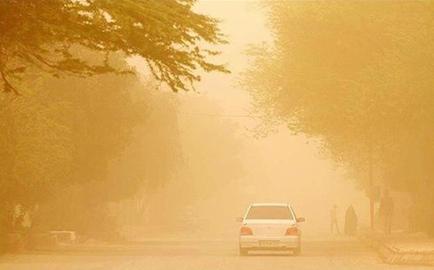
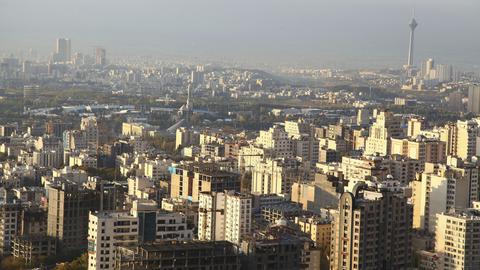
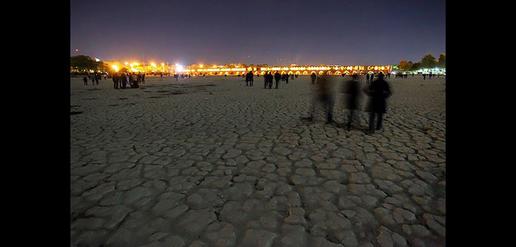
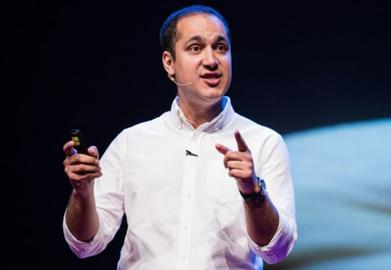



















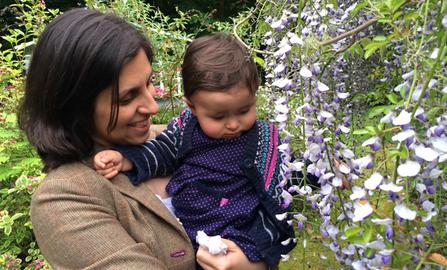
comments